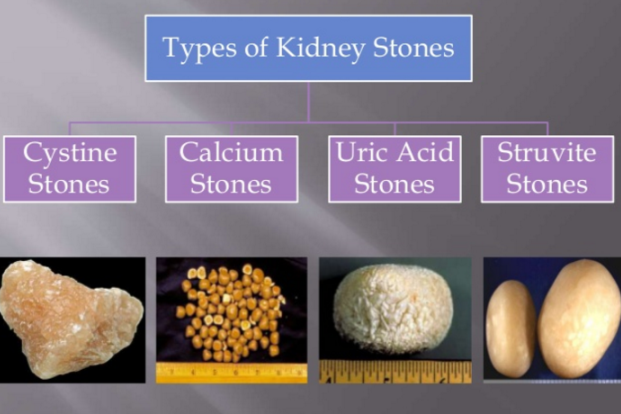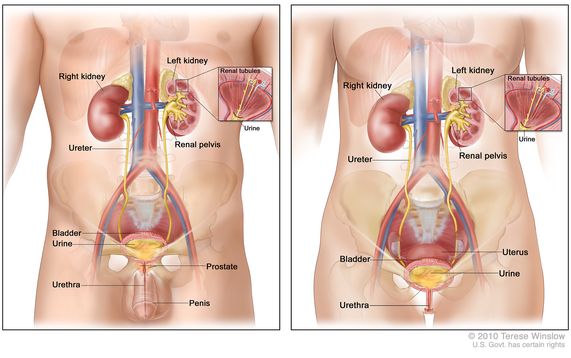Kidney Stones vs UTI: Specialist Insights on Symptoms, Diagnosis, and Management
Kidney Stones vs UTI: Specialist Insights on Symptoms, Diagnosis, and Management
Blog Article
Exploring the Manifestations and Causes of Kidney Stones in Contrast to Urinary Tract Infections: A Detailed Guide
The exploration of kidney rocks and urinary system tract infections (UTIs) discloses a complex interaction of signs and underlying causes that require careful evaluation. While both conditions can bring about hematuria, they present unique medical attributes and develop from different etiological aspects. Recognizing the nuances of each condition is vital for efficient diagnosis and management. What are the vital differences in their symptoms, and exactly how might these educate therapy methods? The solution to these concerns may give important insights into the avoidance and care of these typical urological concerns.
Overview of Kidney Stones
Kidney stones, likewise understood as renal calculi, kind when specific compounds in the pee crystallize and aggregate, resulting in the advancement of difficult down payments within the kidneys. These rocks can differ in size, varying from a grain of sand to a golf round, and can be composed of various materials, the most usual being calcium oxalate, uric acid, struvite, and cystine. The formation of kidney stones is influenced by several elements, including nutritional practices, liquid consumption, and genetic predisposition.
Symptoms of kidney rocks might include serious discomfort in the back or side, blood in the pee, nausea, and regular urination, specifically as the stone relocates with the urinary tract. Diagnosis commonly entails imaging research studies such as ultrasound or CT scans, alongside urinalysis to recognize the stone's structure.
Treatment options vary based upon the dimension and sort of rock, as well as the seriousness of signs (Kidney Stones vs UTI). Small stones might pass naturally with enhanced liquid consumption, while bigger rocks may call for medical interventions such as lithotripsy or medical removal. Understanding the pathophysiology and danger variables connected with kidney rocks is essential for effective prevention and administration
Overview of Urinary System System Infections
Urinary system system infections (UTIs) are common bacterial infections that influence any kind of component of the urinary system, including the kidneys, ureters, bladder, and urethra. They predominantly take place when microorganisms, commonly from the intestinal system, go into the urinary system, resulting in swelling and infection. UTIs are categorized into 2 primary kinds: uncomplicated and challenging. Uncomplicated UTIs usually occur in healthy people with normal urinary system tracts, while complicated UTIs might emerge in people with hidden conditions, such as architectural irregularities or endangered body immune systems.
The occurrence of UTIs is especially higher in women than men, largely because of physiological differences, such as a shorter urethra. Threat elements consist of sex-related task, certain contraceptive approaches, urinary retention, and dehydration. The medical diagnosis of UTIs is typically verified via pee tests, which may reveal the existence of germs, leukocyte, or red cell.

Signs And Symptoms of Kidney Stones
The pain linked with kidney rocks can show up in numerous ways, commonly leading individuals to seek medical interest. Among one of the most common signs is extreme pain, generally localized in the reduced back or side, which may emit to the abdominal area or groin. This discomfort, commonly explained as sharp or cramping, can take place all of a sudden and might rise and fall in strength.
Additionally, individuals might experience hematuria, or blood in the pee, which can range from tiny total up to visible discoloration. This symptom might be accompanied by changes in urinary behaviors, such as increased regularity or urgency, as well as discomfort during peeing. Nausea or vomiting and throwing up are also widespread, typically resulting from the body's response to intense pain.
Sometimes, people might experience high temperature and cools, especially if a secondary infection establishes as a result of the blockage triggered by the stones. Generally, the combination of severe pain, hematuria, modified urinary patterns, and stomach symptoms can offer Read Full Report substantial insight into the existence of kidney rocks, requiring timely medical examination and intervention. Recognizing these signs is critical for timely medical diagnosis and efficient monitoring of the problem.
Symptoms of Urinary System Infections
Infections within the urinary system tract commonly provide a variety of distinct symptoms that can considerably affect day-to-day live. One of the most common signs consist of a persistent desire to urinate, often accompanied by a burning feeling throughout peeing, known as dysuria. People may also experience increased frequency of urination, creating percentages of pee each time.
Various other notable signs and symptoms include gloomy or reeky pee, which might suggest the visibility of microorganisms or pus. In many cases, pee might show up pink or red due to the presence of blood, a problem recognized as hematuria. Furthermore, individuals may experience pelvic discomfort or pressure, which can even more exacerbate the feeling of urgency.
Systemic signs and symptoms may also manifest, such as fever, cools, and exhaustion, especially if the infection has risen to the kidneys. It is important to recognize these signs and symptoms early, as untreated urinary tract infections can bring about more serious difficulties. Kidney Stones vs UTI. Prompt clinical attention is recommended when these signs are observed, permitting for appropriate diagnostic page examination and treatment to reduce discomfort and stop further health problems
Sources Of Each Problem
Regularly, kidney rocks and urinary system tract infections occur from unique yet often overlapping reasons that can affect individuals in different ways. Dehydration, insufficient liquid intake, and high-sodium diet plans can worsen these conditions, advertising crystallization within the urinary system.

Understanding these unique reasons is crucial for avoidance and therapy. Kidney Stones vs UTI. While lifestyle alterations might minimize the risk of kidney rocks, appropriate health and punctual treatment of urinary system infections are important for minimizing their recurrence and linked difficulties
Verdict
In recap, kidney stones and urinary system tract infections existing distinct symptoms and underlying causes. Kidney stones are characterized by serious pain and metabolic elements, while urinary system tract infections mainly include microbial infections leading to urinary system necessity and discomfort.
The this hyperlink exploration of kidney rocks and urinary system tract infections (UTIs) exposes an intricate interaction of signs and symptoms and underlying causes that require careful assessment.Urinary tract infections (UTIs) are common microbial infections that influence any part of the urinary system, consisting of the kidneys, ureters, bladder, and urethra.Often, kidney rocks and urinary system tract infections arise from distinctive yet sometimes overlapping reasons that can influence people in different ways.In recap, kidney stones and urinary system infections present distinctive signs and underlying causes. Kidney stones are identified by serious pain and metabolic variables, while urinary system tract infections largely entail bacterial infections leading to urinary system necessity and discomfort.
Report this page